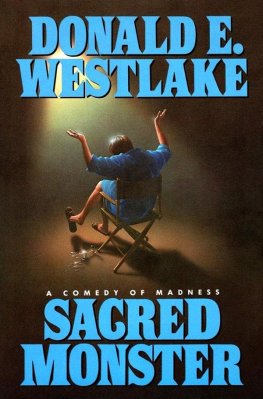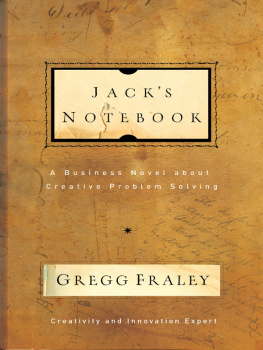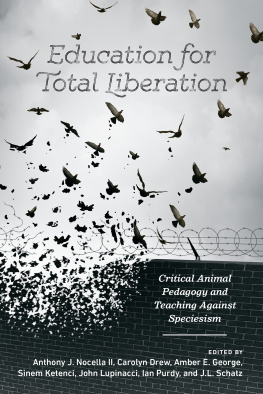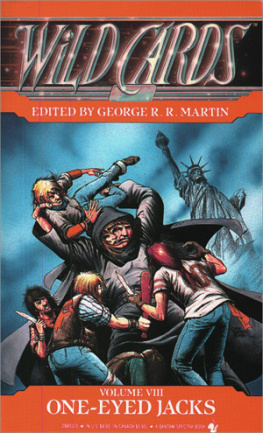The International Library of Sociology
TOTAL EDUCATION
The International Library of Sociology
THE SOCIOLOGY OF EDUCATION
In 28 Volumes
| I | Adolescent Girls in Approved Schools | Richardson |
| II | Adult Education | Peers |
| III | Down Stream | Dale and GrWith |
| IV | Education After School | Stimson |
| V | Education and Society | Ottaway |
| VI | Education and Society in Modem France | Fraser |
| VII | Education and Society in Modem Germany | Samael and Thomas |
| VIII | Education and the Handicapped: 1760-1960 | Pritchard |
| IX | Education in Israel | Beniwich |
| X | Education in Transition | Dent |
| XI | The Education of the Countryman | Burton |
| XII | The Educational Thought and Influence of Matthew Arnold | Connell |
| XIII | English Primary Education (Part One): Schools | Blythe |
| XIV | English Primary Education (Part Two): Background | Blythe |
| XV | From School to University | Dale |
| XVI | ilelvetius | Cumming |
| XVII | Mission of the University | Ortega y Gasset |
| (The above title is not available through Routledge in North America) |
| XVIII | Parity and Prestige to English Secondary Education | Banks |
| XIX | Problems in Education | Holmes |
| XX | The School Inspector | Edmonds |
| XXI | The Sixth Form and College Entrance | Morrtc |
| XXII | Social Class and the Comprehensive School | Ford |
| XXIII | The Social Psychology of Education | Fleming |
| XXIV | The Social Purposes of Education | Collier |
| XXV | Social Relations in a Secondary School | Hargreaves |
| XXVI | Total Education | Jacks |
| XXVII | Values and Involvement in a Grammar School | King |
| XXVIII | Who Shall Be Educated? | Warner, Havighurst and Loeb |
| The above title is not available through Routledge in North America) |

First Published in 1946 by
Routledge, Trench, Trubner and Co., Ltd
Reprinted in 1998, 1999, 2001(twice by
Routledge
2 Park Square, Milton Park, Abingdon, Oxon, OX14 4RN
Transferred to Digital Printing 2007
Routledge is an imprint of the Taylor... Francis Group
1946 M. L. Jacks
All rights reserved. No part of this book may be reprinted or reproduced or utilized in any form or by any electronic, mechanical, or other means, now known or hereafter invented, including photocopying and recording, or in any information storage or retrieval system, without permission in writing from the publishers.
The publishers have made every effort to contact authors/copyright holders of the works reprinted in The International Library of Sociology. This has not been possible in every case, however, and we would welcome correspondence from those individuals/companies we have been unable to trace.
British Library Cataloguing in Publication Data
A CIP catalogue record for this book is available from the British Library
Total Education
ISBN 978-0-415-17777-4
The Sociology of Education: 28 Volumes
ISBN 978-0-415-17833-9
The International Library of Sociology: 274 Volumes
ISBN 978-0-415-17777-1
ISBN 9781136273759 (ePub)
Publishers Note
The publisher has gone to great lengths to ensure the quality of this reprint but points out that some imperfections in the original may be apparent
CONTENTS
Words are sometimes coloured by circumstance, and they take on, from the events of an age, a signification and an atmosphere which are foreign to their original character and which pass away with the passing of time. This has been the fate in our own days of the word Total. The rise of the totalitarian state has coloured everything total with the unhealthy hues of the totalitarian; the two words are often treated as synonyms, and the latter has rendered the former suspect, in whatever context it may occur. It is necessary, therefore, to make it clear that in this book the word total is used in its proper sense of whole, with no arrire penses of a political or ideological character. This is not a book on Totalitarian Education, nor a recommendation that any of the principles of political totalitarianism should be applied to education. Indeed, in the view of the writer, there is no such thing as Totalitarian Education : the phrase contains a contradiction in terms, and we should not recognize as education anything that goes on in the schools and universities of the totalitarian state. Such a pseudo-education is indeed the very antithesis of Total Education as it is interpreted in this book : to take but one instance, Total Education (by definition) caters for the needs of all boys and girls and adult members of the community in their infinite variety, and it can only do this if its educational provision is of a like varietya variety which will depend to some degree on independence : but such variety and independence could never be tolerated in the totalitarian state. The two conceptionsTotal Education and Totalitarian Educationare poles asunder. This book is a plea for the former, for a synthesis in our educational planning and in our educational practice, but not for a strait-waistcoat. There is nothing uniform or rigid or regimented about Total Education. To use a metaphor which is used more than once in the following pages, its aim is an educational tapestry, on which there is woven, out of a diversity of colours and designs, an intelligible pattern.
TOTAL EDUCATION
CHAPTER I
ANALYSIS AND SYNTHESIS
Analysis has for its chief function to prepare the way for synthesis.
Herbert Spencer.
The human mind is more apt for analysis than for synthesis, and the process of investigation or dissection comes more easily to us than the process of construction or articulation. Many of our semi-proverbial cautions and injunctions, which have become current in common speech, bear witness to this. Think it outone of the schoolmasters favourite pieces of advice; let us get down to brass tacks; the bare bones of the problem; we cannot see the wood for the trees; look after the pence and the pounds with look after themselves these, and a score of similar phrases, which are constantly on our lips, are evidence for this natural tendency of our minds. Each in our own field, we analyse that which is presented to us, as a necessary step to its understanding; the scientist analyses light, sound, or chemical compounds; the literary critic a poem or a tale; the grammarian a sentence and its clauses; the philosopher an argument, a system of thought, or the sequence of cause and effect; the sociologist a social system; the man in the street his feelings, his mental processes, his motives, and the situations with which his daily life confronts him. The psycho-analyst analyses the unconscious; and the undiscriminating eagerness with which the processes of psycho-analysis have been accepted by the general public, even in their most experimental forms, is further evidence of how congenial the work of analysis is. This analysis is sometimes quantitative, sometimes qualitative, and often a confused medley of the two. On the other hand, the work of synthesis is much less congenial, and the faculty of integration a much less common phenomenon. To synthesize is a more formidable task than to analyse, and it can only be accomplished by the choicest spirits. It is they who, in the field of science, can attain to a synoptic view of the universe, which comprehends in one grasp not only the individual links in the causal chain, but the chain as a whole, linking together the full experiences of the human mind. The great physicians are not those who are most skilful at analysing a disease, but rather those who know that there is no such thing as a disease, but simply a sick human being, and who treat each patient as a whole, ministering to a mind and a character which are diseased in the diseases of the body. The literary critic who subjects the parables of Jesus to a detailed analysis will arrive at a result very different from the intention of their author : it is noteworthy that the analytical explanations of these parables to be found in the Gospels are of very doubtful authenticity, and they yield only fragments of the truth, and indeed obscure the meaning of the parable as a whole. Analysis , said Macaulay, is not the business of the poet : his office is to portray, not to dissect , and the poet is by derivation the maker , whose work represents the rarest creations of the human spirit. The man in the street for whom his daily experience is an ordered unity, who sees his life steadily and sees it whole, will find himself travelling with but few companions. It was only the philosopher-kings, rare spirits, who could grasp the idea of the Good.












